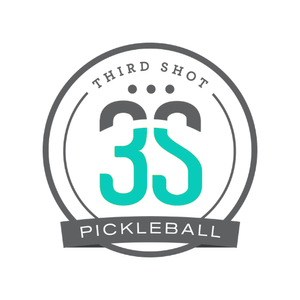by Mark Renneson
If I were to ask you what the best part of a pickleball lesson is, I think it's unlikely that you would say "the warm-up." For most of us, the warm-up (if it takes place at all) is a necessary evil that nobody really enjoys. This is because we don't typically give the warm-up the care and attention it deserves.
We often think of the warm-up as what we do before the real action begins – the stuff we have to do before we get to do the stuff we want to do. While this may be true in the context of a pickleball match (and even this is debatable), it shouldn't be the case during pickleball lessons. Here are three reasons why pickleball instructors should care more about the warm-up:
Tone-setting. First impressions matter, and the warm-up is a great chance to set expectations for the lesson. Does the instructor bring fun and energy to the court? Do they keep things moving quickly? Do they push their players to focus, to concentrate on achieving a goal or completing a task? Does the instructor make the warm-up fun by incorporating little games and contests? The warm-up is an opportunity for the coach to set the tone for the rest of the lesson and to demonstrate the kind of standards they expect from their players.
Skill consolidation. While the warm-up isn't typically about learning new skills, it's a perfect time to maintain the skills previously worked on. The instructor should remind their players about what they've done before and encourage them to maintain that standard. If, for example, players have previously worked on having a great impact point when volleying, then the instructor should remind them about this and use the warm-up as a chance to practice it in a deliberate way. The same can be said for skills like setting up well to the ball, hitting to a particular target, or maintaining a certain rhythm. The warm-up is the perfect chance to do some important maintenance work.
Hitting with intent. Good pickleball players don't hit thoughtless shots – every ball matters. The warm-up is a great time to train the players to hit shots with a clear intention. Whether it's about keeping the ball low, sending it a certain direction, or hitting a specific depth, instructors can use the warm-up to habituate players into being thoughtful hitters each time they hit a shot. Even if the result isn't always perfect, getting used to having a plan each time you strike the ball is valuable.
Does all of this mean that the warm-up needs to be the most fun part of the lesson? No, of course not. But neither should it be a wasted 10 minutes. Effective coaches maximize their opportunities to improve the performance of their players. By taking the warm-up more seriously – by caring about it – coaches give their players more chances to get more meaningful reps. And those meaningful reps are what lead to improvement.
Mark Renneson is the Head of Pickleball Coaching International and Third Shot Sports.





